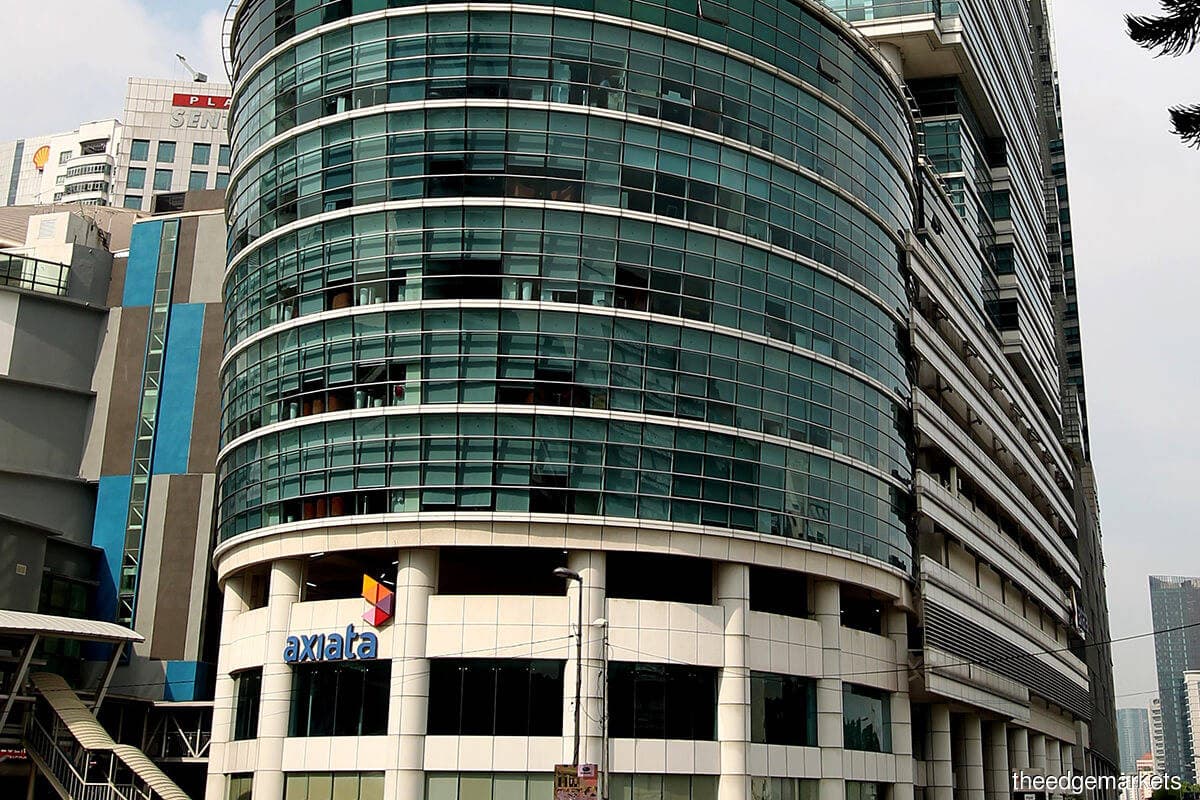
KUALA LUMPUR (Aug 26): Axiata Group Bhd is planning to extend the tenure of some short-term debts, which are set to mature in two years, to maturities of three to 10 years.
The move is part of its bid to ease a balance sheet that has been been “stretched” after the group increased its borrowings to acquire telecommunication towers in the Philippines and a broadband-cum-cable TV services provider in Indonesia.
“If you go back one quarter, you would see most of our debts are five to 10 years or 30 years [maturity]. These acquisitions we made were where we borrowed for short-term. The reason was because there are clear plans for us to either convert them into long-term loans, or pare down some of these debts, as we speak,” said Vivek Sood, Axiata's chief financial officer and joint acting chief executive officer.
In June, Axiata acquired 66% of Indonesian broadband-cum-cable TV services provider PT Link Net Tbk for RM2.62 billion; 46% of that shareholding is taken up directly by Axiata, while the balance 20% is acquired via its 61.48%-owned Indonesian unit PT XL Axiata Tbk.
Two months before that, Axiata’s 63%-owned telco tower operator edotco Group Sdn Bhd proposed to buy 2,973 towers and related assets in the Philippines for RM3.42 billion.
Axiata will pare down debts incurred for the acquisition of the 46% stake in Link Net, which amounts to about RM2 billion, while the short-term borrowings by XL Axiata and edotco will be extended, Vivek said during Friday's virtual media briefing on the group's latest quarterly results.
“XL has already completed that exercise, moving from either three or 10 years' maturity, which should ease the maturity profile for Indonesia," he said, adding edotco is carrying out similar exercise.
“So, we don’t see maturity as a concern. There are these acquisition exercises that we need to do in the short term, but there are clear plans of converting them into long duration debt, as well as to pare down some of it,” he said.
Axiata's borrowings amounted to RM25.20 billion as at end-June, of which 38% or RM9.58 billion would mature within two years, while the group’s cash pile stood at RM6.59 billion.
Gross debt-to-earnings before interest, depreciation and amortisation (Ebitda) rose to 3.03 times, primarily impacted by higher debt to fund Link Net and Philippines telco tower acquisitions.
Gross debt-to-Ebitda stood at 2.49 times in the first quarter ended March 31, 2022 (1QFY22), when cash balance was at RM5.8 billion.
The group’s net debt-to-Ebitda stood at 2.48 times in 2QFY22, the highest among domestic peers, followed by Maxis Bhd’s 2.36 times, DiGi.Com Bhd’s 1.5 times and Telekom Malaysia Bhd’s 1.12 times according to Bloomberg data.
In comparison with international peers, Axiata’s debt-to-Ebitda is relatively lower than Telenor ASA’s 2.59 times and Bharti Airtel Ltd’s 2.76 times, but higher than PT Indosat Tbk’s 2.16 times and PT Telkom Indonesia Tbk’s 0.42 times.
For its 2QFY22, the group posted a net loss of RM106.38 million versus a net profit of RM277.76 million a year ago due to significant foreign exchange (forex) losses contributed by its mobile operations in Sri Lanka. As such, the group posted a net loss of RM149.35 million for the first half ended June 30, 2022 (1HFY22), versus a net profit of RM353.32 million a year ago; revenue rose 5.8% to RM13.17 billion from RM12.45 billion.
Vivek said the group has no plans to exit the financially troubled country currently, and expects the Sri Lanka currency to stabilise for the remainder of the year.
“We also see now the engagement is happening in the government and IMF (International Monetary Fund) for the extension of credit facilities, which should provide liquidity to the currency. We can’t say the currency is not going to go further southward at this point in time, but I think the developments that happened recently are in the right direction,” he said.
Despite the weaker 1HFY22 financial results, Vivek said the group's operational performances remained encouraging, and that the group is expected to exceed its guidance key performance indicators (KPIs) for 2022.
“We are still fairly confident of exceeding the KPIs, I would say we should be looking at maybe a high-single-digit revenue (growth), as well as double-digit EBIT growth for the full year.
“Having said that, we are cognisant of the fact that the macro situation in some of the countries (we are in) are still not stable, so we are conscious about that and we are taking necessary steps to manage that,” he said.
Celcom-DiGi merger 'progressing well'
Vivek also updated that the merger between Celcom Axiata Bhd and DiGi.Com Bhd is “progressing well”, and that Axiata is submitting its draft circular for that deal to Bursa Malaysia for approval.
“If everything goes in line, the EGMs (extraordinary general meetings) of both companies should be some time in November, and be completed by the end of this year,” he said.
Likewise, Vivek said the negotiations for equity investment in Digital Nasional Bhd (DNB) and commercial agreement for 5G access are “progressing well”, and that the group’s balance sheet is strong enough to fund these arrangements.
“I would not talk about a date, but I can say the discussions have been positive. We will continue this effort to make 5G available to consumers as fast as possible. I think we are getting there,” he said.
“I don’t think the requirement of funding for equity in DNB is anything significant, compared to our overall balance sheet. So, I don’t see that being a concern for us. Having said that, we have plans in place of how to de-leverage the balance sheet as well as how to improve the cash flow for us,” he added.
Shares of Axiata closed five sen or 1.6% lower at RM3.03 apiece on Friday, giving the group a market capitalisation of RM27.81 billion.


